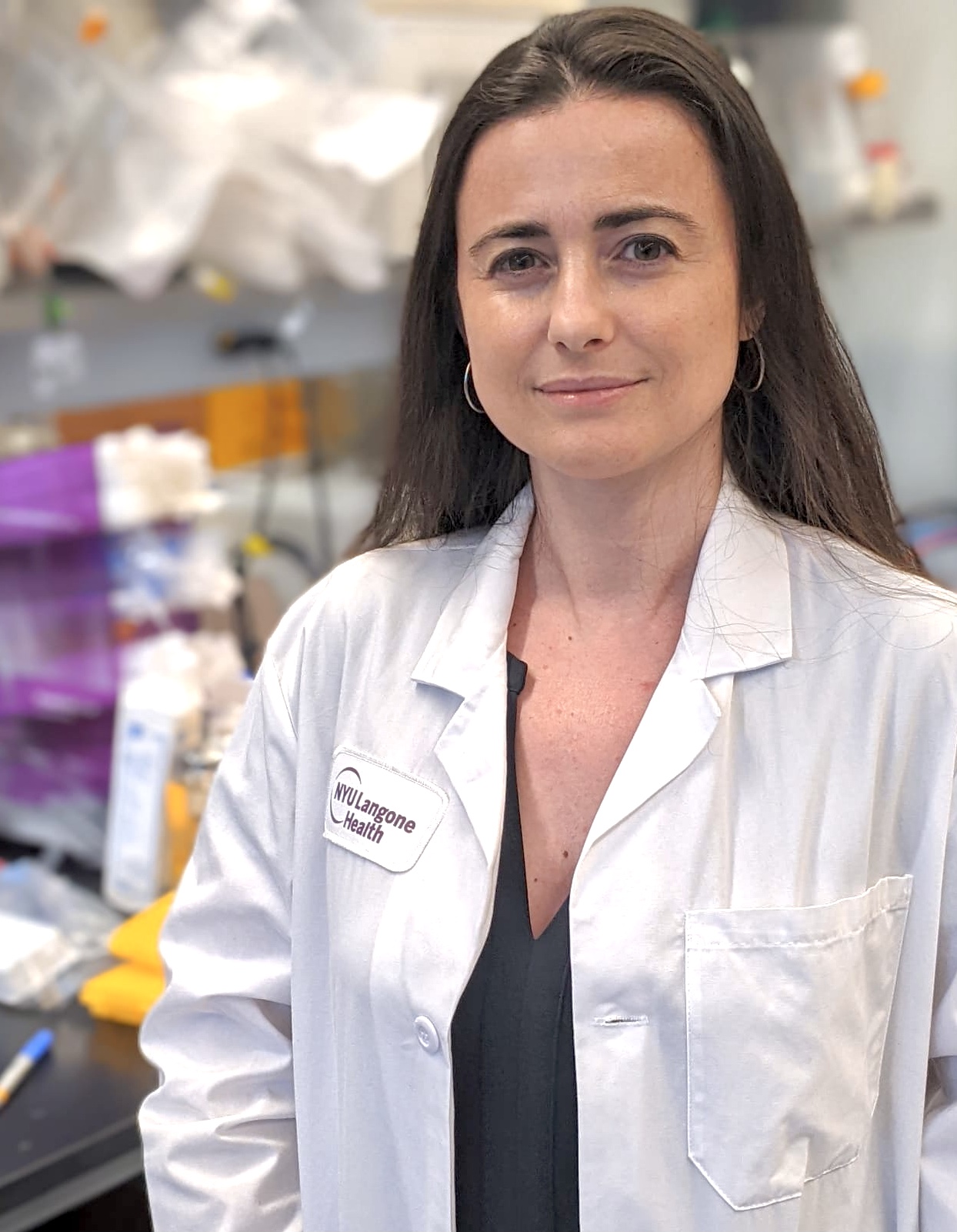Links connecting stress, depression and heart disease risk found in mouse model
[ad_1]
Research Highlights:
- Results from a new study conducted on mice may aid in understanding how depression and prolonged and severe stress increase the risk of cardiovascular disease.
- The findings might provide insight to help understand why people with depression are at increased risk for cardiovascular disease.
Embargoed for release at 10:45 a.m. PT/1:45 p.m. ET Friday, May 13, 2022

 (NewMediaWire) – May 13, 2022 – SEATTLE – Results from a new mouse model may aid in understanding how depression and prolonged and severe stress increase the risk of cardiovascular disease, according to preliminary research presented at the American Heart Association’s Vascular Discovery: From Genes to Medicine Scientific Sessions 2022. The meeting is being held May 12-14, 2022, in Seattle and is a premier global exchange of the latest advances in new and emerging scientific research in arteriosclerosis, thrombosis, vascular biology, peripheral vascular disease, vascular surgery and functional genomics.
(NewMediaWire) – May 13, 2022 – SEATTLE – Results from a new mouse model may aid in understanding how depression and prolonged and severe stress increase the risk of cardiovascular disease, according to preliminary research presented at the American Heart Association’s Vascular Discovery: From Genes to Medicine Scientific Sessions 2022. The meeting is being held May 12-14, 2022, in Seattle and is a premier global exchange of the latest advances in new and emerging scientific research in arteriosclerosis, thrombosis, vascular biology, peripheral vascular disease, vascular surgery and functional genomics.
“Previous research has shown major depressive disorders and anxiety due to prolonged and severe stress have been associated with an increased rate of cardiovascular disease. The risk of developing cardiovascular disease increases in proportion to depression severity,” said lead study author Özlem Tufanli Kireccibasi, Ph.D., a postdoctoral fellow in the laboratory of Edward A. Fisher, M.D., Ph.D., M.P.H., FAHA, in the Cardiovascular Research Center at NYU Grossman School of Medicine in New York City. “When both a major depressive disorder and cardiovascular disease are present, the prognosis is worse for both conditions.”
The researchers state theirs is the first study to use a mouse model of chronic stress and depression to investigate whether and how chronic stress may affect cholesterol-lowering medications.
Researchers examined mice lacking a low-density lipoprotein receptor (LDLr), which is required to clear LDL (bad) cholesterol from the body. These mice, like people who are born lacking the receptor, are prone to develop fatty buildups called plaque in their arteries and are subject to premature and aggressive cardiovascular disease. Unstable plaque (prone to rupture) can break apart causing blood clots to form that block blood flow, which may lead to a heart attack or stroke. To mimic fatty plaque development in people, the mice were fed a cholesterol-rich diet for 24 weeks.
Half of the mice were exposed to social stress via sharing their living space with other larger, aggressive mice for short periods of time over ten days. After each stress episode, the mice were evaluated for social avoidance and depression-like or anxiety-like behaviors. The mice that showed the behaviors were classified as susceptible (depressed), and the others were classified as resilient (effective coping). The other half of the mice (controls) were not exposed to social stress.
Both the susceptible (depressed) mice and the control mice were treated with an LDL-lowering medication for 3 weeks, to mimic cholesterol treatment in humans. Previous studies have found that when LDLr-deficient mice are treated with lipid-lowering medication, arterial plaque becomes less inflammatory and more stable. After treatment, the mice were tested for changes in the number of inflammatory cells in their plaque, the number of inflammatory white blood cells (monocytes) circulating in the blood, and the number of bone marrow cells, which are precursors to the immune cells abundant in plaque. The resilient mice were similarly evaluated, however, the analyses for this group of mice are ongoing.
The analyses found that, compared with mice not exposed to stress (the control group), the susceptible (depressed) mice from the group exposed to social stress had:
- 50% higher rise in immune cells within plaque in their arteries;
- double the number of circulating monocytes, which are precursors of inflammatory cells;
- 80% increase in the number of immune-cell precursors in bone marrow;
- less collagen within plaque in the arteries, which is an indicator of instability; and
- a similar lowering of lipid levels when compared to the control groups’ response to LDL lowering medication.
“The major finding is that repeated stress and the physiological and behavioral effects of hostile interactions (social defeat) appear to prevent the full beneficial changes to plaques that should be induced by lipid-lowering medications,” Tufanli Kireccibasi said.
The researchers also analyzed whether differences in the bone marrow of the depressed mice may underlie the differences in the size and characteristics of the plaque. To test this, another group of LDLr-deficient mice received bone marrow transplanted from either the susceptible (depressed) mice or the control group. After the bone marrow transplant, the mice were fed the cholesterol-rich diet for 24 weeks.
Compared with mice that received bone marrow from the control group (no stress), the mice that received bone marrow from the susceptible group had:
- 16% greater increase in immune-cell precursors in bone marrow;
- 50% greater increase in inflammatory monocytes in the blood; and
- no change in plaque size, but in plaque composition, with 23% more inflammation within the plaques.
“Taking all of our results together, we suggest that in situations in which there is chronic stress, the adverse effects of high cholesterol may be enhanced, and the benefits of low cholesterol are lessened. This suggests that chronic stress mediates reprogramming at the genetic level, called epigenetic changes, in bone marrow precursors of monocytes so that when the cells enter plaques they are already more inflammatory,” Tufanli Kireccibasi said.
This mouse model may provide a way to investigate and improve treatment for depression and prolonged stress and, in turn, improve cardiovascular outcomes.
“These findings may indicate more attention to mental health is needed to fight cardiovascular disease, particularly for people with depression or chronic stress. In the next decades, new therapies for atherosclerosis should focus on altering immune responses, inhibiting inflammation and promoting pathways of plaque resolution. These therapies have great potential for benefiting people with cardiovascular disease, and likely particularly in those with depression,” Tufanli Kireccibasi said.
The researchers are currently collecting samples from mice that were exposed to the same repeated stress but appeared to be resilient to it. “We will conduct the same analyses as this study to determine whether it is exposure to stress or the susceptibility to it that instigates changes in plaque leading to lessening or worsening of plaque,” Tufanli Kireccibasi said.
Co-authors are Bianca Scolaro, Ph.D.; Ada Weinstock, Ph.D.; Angelica Torres Berrio, Ph.D.; Eric Parise, Ph.D.; Flurin Cathomas, M.D.; Kenny Chan, Ph.D.; Eric J. Nestler, M.D., Ph.D.; Scott J. Russo, Ph.D.; and Edward A. Fisher, M.D., Ph.D., M.P.H., FAHA. Authors’ disclosures are listed in the abstract.
The study was funded by the National Heart, Lung, and Blood Institute and the National Institute of Mental Health, divisions of the National Institutes of Health.
Statements and conclusions of studies that are presented at the American Heart Association’s scientific meetings are solely those of the study authors and do not necessarily reflect the Association’s policy or position. The Association makes no representation or guarantee as to their accuracy or reliability. Abstracts presented at the Association’s scientific meetings are not peer-reviewed, rather, they are curated by independent review panels and are considered based on the potential to add to the diversity of scientific issues and views discussed at the meeting. The findings are considered preliminary until published as a full manuscript in a peer-reviewed scientific journal.
The Association receives funding primarily from individuals; foundations and corporations (including pharmaceutical, device manufacturers and other companies) also make donations and fund specific Association programs and events. The Association has strict policies to prevent these relationships from influencing the science content. Revenues from pharmaceutical and biotech companies, device manufacturers and health insurance providers and the Association’s overall financial information are available here.
Additional Resources:
The American Heart Association’s Vascular Discovery: From Genes to Medicine Scientific Sessions 2022 is the world’s premier meeting dedicated to the latest advances in new and emerging scientific research in the areas of arteriosclerosis, thrombosis, vascular biology, genomics, precision medicine, peripheral vascular disease and vascular surgery. The meeting will be held May 12-14, 2022 in Seattle. The Vascular Discovery 2022 Scientific Sessions program is planned by the American Heart Association’s Council on Arteriosclerosis, Thrombosis and Vascular Biology and the Peripheral Vascular Disease Council, in cooperation with the Council on Genomic and Precision Medicine and the Society for Vascular Surgery, The meeting is of special interest to scientists and clinicians in cardiovascular medicine, cardiovascular research, thrombosis research, clinical cardiology, molecular/cellular biology, vascular biology, vascular medicine, vascular surgery, endocrinology, genetics, functional genomics, hematology, immunology and physiology. Follow the conference on Twitter at #VascularDiscovery22.
About the American Heart Association
The American Heart Association is a leading force for a world of longer, healthier lives. With nearly a century of lifesaving work, the Dallas-based association is dedicated to ensuring equitable health for all. We are a trustworthy source empowering people to improve their heart health, brain health and well-being. We collaborate with numerous organizations and millions of volunteers to fund innovative research, advocate for stronger public health policies, and share lifesaving resources and information. Connect with us on heart.org, Facebook, Twitter or by calling 1-800-AHA-USA1.
###
For Media Inquiries and AHA Expert Perspective:
AHA Communications & Media Relations in Dallas: 214-706-1173; ahacommunications@heart.org
Karen Astle: Karen.astle@heart.org, 214-706-1392
For Public Inquiries: 1-800-AHA-USA1 (242-8721)
heart.org and stroke.org
[ad_2]




